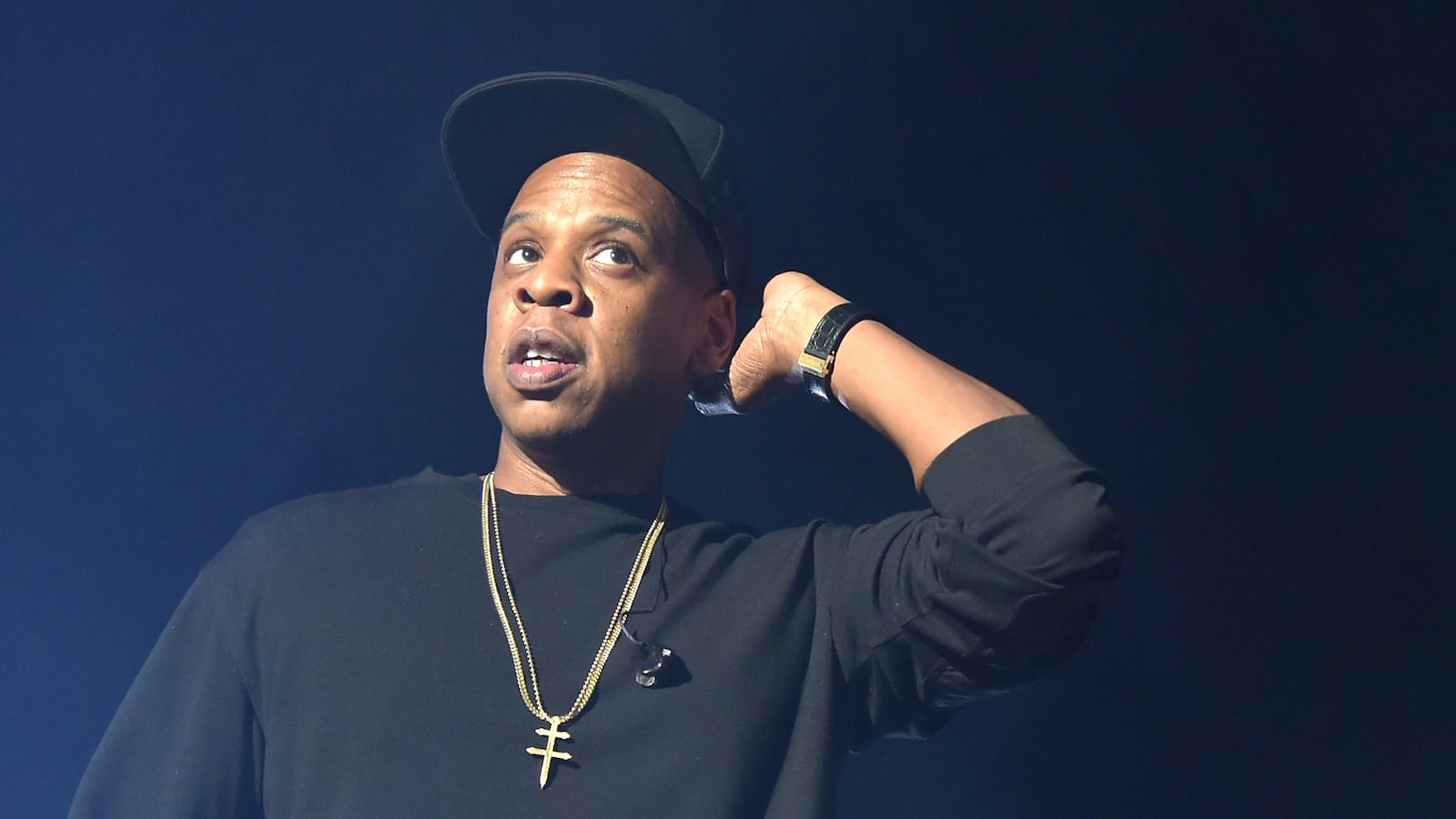In a visually arresting New York Times video released Thursday morning, Jay Z deemed America’s War on Drugs an “epic fail.”
The former cocaine dealer turned hip-hop royalty eviscerated government policies, from the Nixon administration and the Rockefeller drug laws up to present-day racial profiling. With his trademark sardonic drawl, the rapper ties up 45 years of ineffective governance with a common thread of racism and hypocrisy. His script, brought to life through Molly Crabapple’s stunning illustrations, starts in 1986, when the erstwhile Shawn Carter “was coming of age.” He describes a ramped up War on Drugs in inner cities, where “drug dealers were monsters” and “young men like me who hustled became the sole villain.” This tunnel vision caused America’s incarceration rates to skyrocket, as judges were pressured to hand out mandatory life sentences for possession charges and low-level drug sales.
Jay Z notes that America’s prison population, which is disproportionately black and Latino, is bigger than any country’s in the world, even the countries “we consider autocratic, and oppressive.” He adds, dryly, “Yeah. More than them.” Next, he debunks the distinction between powder cocaine and crack cocaine. Crack, which is “still talked about as a black problem,” was penalized more harshly than powder cocaine. This racist sentencing policy privileged the powerful and imprisoned the powerless: “The NYPD raided our Brooklyn neighborhoods while Manhattan bankers openly used coke with impunity.”
While we’ve started to treat drug addiction as a serious health problem, Carter points out, “There’s no compassionate language about drug dealers.” The irony gets even richer, when we consider that “crimes” like possessing or selling marijuana are quickly becoming legal business ventures. Carter chronicles the transformation of chronic into a booming industry in places like Colorado—meanwhile, just a few states away, Louisiana is still handing out mandatory sentences for people who sell weed. He stresses that most states still disproportionately target blacks and Latinos for marijuana sales. Once they serve their sentences, these drug dealers are permanently marked as former felons, and barred from opening a marijuana dispensary. Venture capitalists move in to reap the rewards of legalization and are heralded as entrepreneurs, as the original dealers are shut out from one of the fastest-growing economies. In other words, rich white dudes can get richer doing the same thing that sent countless people of color to prison.
Jay Z ends by charting this brand of hypocrisy back home to New York: “Kids in Crown Heights are constantly stopped and ticketed for trees. Kids at dorms in Columbia, where rates of marijuana use are equal to or worse than those in the hood, are never targeted or ticketed.” Except, of course, if they’re students of color. Carter concludes that 45 years later, the rates of drug use are just as high as they were under Reagan, and “It’s time to rethink our policies and laws.”
The video, made in conjunction with the Drug Policy Alliance and Revolve Impact, seeks to educate on the wide-reaching impact of the drug war. It’s also tied to a specific policy measure, California’s Prop 64, which is described as “the most racial-justice-oriented marijuana legalization measure ever.” Having started his career as a rapper turning his drug dealing past into music, it’s only fitting that Shawn Carter was the one to elevate the story of the War on Drugs into art. Plus, condensing decades’ worth of information and policy into four minutes without making it sound like a speed-reading contest or a history lesson is a challenge worthy of the master of the flow.
While hip-hop fans know Jay Z as the genius behind albums like The Blueprint and The Black Album, and Beyoncé fans know him as an Instagram husband, Carter has never hidden his political proclivities. In the wake of the Baltimore and Ferguson Black Lives Matter protests, Jay and Bey quickly wired tens of thousands of dollars to help activists post bail. Carter has donated over a million dollars to BLM, and dropped a police brutality protest song, “Spiritual,” following the murders of Alton Sterling and Philando Castile. Just consider this the latest phase in Beyoncé and Jay Z’s secret Illuminati plot to make the world a better place.






